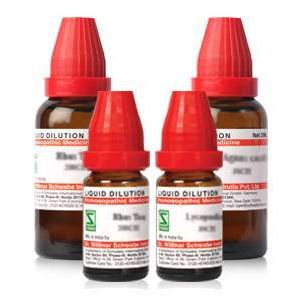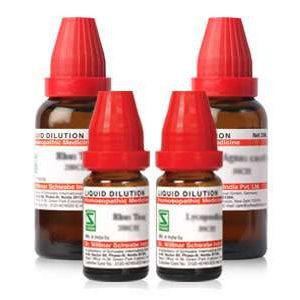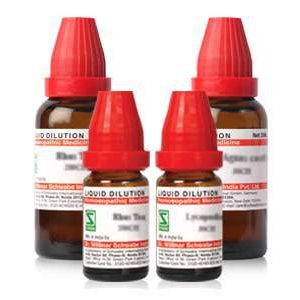
Defend Against Winter Cold & Cough Symptoms with Homeopathy
- Dr. P T Ponmani
- December 23, 2019
- No Comments

The common cold is an upper respiratory tract infection caused by different viruses. The common cold is transmitted by virus-infected airborne droplets or by direct contact with infected persons or secretions. Common cold and flu viruses try to gain entry into the body through the air. As a first line of defence, our nasal lining has a protective mechanism against these microbes through ciliary movement and by constantly secreting mucus. Once the virus has penetrated this defence mechanism, the immune system takes control of fighting off the intruder. And then the phagocytes, which are specialized immune cells, engulf and digest viruses.
But cold air and the winter season have been linked to a decrease in this activity. The cold air cools the nasal passage and slows down mucus clearance. Cold weather promotes close contact with others and thereby causes frequent infections. Staying indoors and lack of sunlight are also reasons for decreased immune activity.
Symptoms of Cold and Cough
The symptoms are a stuffed nose, runny nose, sore or scratchy throat, sneezing, hoarseness, cough, low-grade fever, headache, earache, body aches, loss of appetite, and fatigue. The cold usually begins with a runny nose and sneezing with clear nasal discharge, which may later become yellowish or greenish in color.
1. Sore throats
Sore throats are common in winter and are almost always caused by viral infections. The changes in temperature, such as going from a warm room to the icy outdoors, can also affect the throat.
2. Asthma
Cold air is a major trigger of asthma symptoms such as wheezing and shortness of breath. People with asthma should take extra care in winter and try to stay indoors on very cold, windy days.
3. The flu
Flu is caused by the influenza virus, of which there are three types: influenza A, influenza B, and influenza C. Common colds and flu have similar symptoms, but infection with influenza often manifests with a high temperature, aching, and cold sweats or shivers.
The best way to protect from winter infections is by washing your hands with soap and water frequently, staying indoors, wearing protective clothing outdoors and staying away from people who are infected.
Homeopathic medicines for winter colds and cough
Homeopathic medicines work like a boon for winter colds and coughs. Remedies like Aconitum, Allium cepa, Antimonium tartaricum, Arsenicum album, Argentum nitricum, Drosera, Euphrasia, Hepar sulph, Kali bichromicum, Phosphorus, Pulsatilla, Rumex, Spongia, etc. are frequently used. Indications of some of these remedies are given below:
Aconite: is an excellent remedy for the early stages of many inflammatory conditions, especially colds and allergy attacks. The cough is typically short and tickling, and may be painful. Things are worse in cold air, at night, and in the early morning. The person feels weary and often has a moderate fever and lightly flushed cheeks.
Allium cepa: clear, burning nasal discharge that burns the skin and upper lip; eyes red and burning with profuse bland tearing; tickling in larynx, painful dry cough; thirst.
Argentum nitricum: Almost like Allium cepa, this drug too has thin watery nasal discharge but is more acrid in nature.
Arsenicum: profuse watery nasal discharge that burns the skin, nose feels stopped up; irritation and tickling in the nose, frequent and violent sneezing; a nasal discharge may be thick and yellow; dull throbbing frontal headache; cough from a tickle in larynx or from deep in the chest, may be loose or dry; burning chest pain; chilly, anxious, restless, and fearful.
Drosera: This remedy relieves dry cough, worse at night and from the warmth of the bed, triggered by speaking or laughing, with a feeling of tickling in the throat.
Euphrasia: bland watery discharge from the nose and copious burning tears, nasal discharge worse in the morning, in the open air, and lying down; loose shallow cough, worse during the day; may cough up large amounts of mucus formed in the upper airways.
Hepar sulph: This relieves dry, hoarse cough worsened by cold air and cold drinks, occurring at the beginning and at the end of the night.
Ipecac: This remedy relieves dry, fitful cough triggering nausea, and accompanied by increased salivation.
Kali bichromicum: used during later stages of cold; discharge thick, yellow or greenish, and stringy, difficult to remove from nose; thick post-nasal drip; sinus headache with pressure at root of nose; head or face pain that can be pointed to with one finger; hoarse voice; better from heat and lying down.
Kali muriaticum: to clear Eustachian tube following earache; snapping noises in the ear, impaired hearing following earache; worse from motion, rich foods, and fats.
Kali sulphuricum: This helps relieve wet cough and nasal congestion with yellow and irritating phlegm.
Phosphorus: This remedy is indicated when a person experiences hoarseness and a tickly cough that hurts the throat, or a cold that travels quickly to the chest. The cough can be aggravated by talking, laughing, and exposure to cold air.
Pulsatilla: This relieves wet cough with thick, yellowish phlegm, aggravated in bed.
Rumex crispus: This remedy relieves dry cough triggered by breathing cold air, with a feeling of scratchy throat, and a tickling above the sternum, between the two collar bones.
-
 Dr Willmar Schwabe India Rumex crispus CHSale Product on sale
Dr Willmar Schwabe India Rumex crispus CHSale Product on sale₹105.00₹86.10 -
 Dr Willmar Schwabe India Pulsatilla nigricans (Pulsatilla) CHSale Product on sale
Dr Willmar Schwabe India Pulsatilla nigricans (Pulsatilla) CHSale Product on sale₹105.00₹86.10 -
 Dr Willmar Schwabe India Phosphorus CHSale Product on sale
Dr Willmar Schwabe India Phosphorus CHSale Product on sale₹105.00₹86.10 -
 Dr Willmar Schwabe India Kali sulphuricum CHSale Product on sale
Dr Willmar Schwabe India Kali sulphuricum CHSale Product on sale₹105.00₹86.10 -
 Dr Willmar Schwabe India Kali muriaticum CHSale Product on sale
Dr Willmar Schwabe India Kali muriaticum CHSale Product on sale₹105.00₹86.10 -
 Dr Willmar Schwabe India Kali bichromicum CHSale Product on sale
Dr Willmar Schwabe India Kali bichromicum CHSale Product on sale₹105.00₹86.10Rated 4.00 out of 5 based on 1 customer rating -
 Dr Willmar Schwabe India Hepar sulphur CHSale Product on sale
Dr Willmar Schwabe India Hepar sulphur CHSale Product on sale₹105.00₹86.10 -
 Dr Willmar Schwabe India Euphrasia officinalis CHSale Product on sale
Dr Willmar Schwabe India Euphrasia officinalis CHSale Product on sale₹105.00₹86.10





































